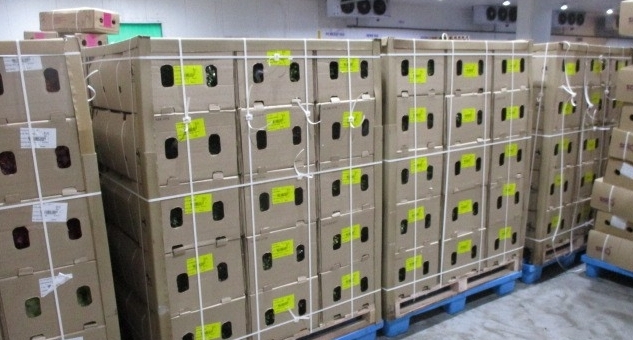Building a future-proof flower storage strategy
Jeroen van der Hulst, owner and founder, FlowerWatch looks at some of the storage solutions the company has developed with its partners.

Air freight capacity has reduced drastically due to the Covid-19 pandemic. How can you create a storage strategy to make sure you can ship enough flowers for peak season? Jeroen van der Hulst, owner and founder, FlowerWatch in his LinkedIn post writes on some of the storage solutions the company has developed with its partners.
Across the world, lockdowns continue to impact air freight capacity. For example, a decline in shipping volume in France is hitting the floriculture market. With an already-reduced air freight capacity, global demand for vaccines could make air freight even more difficult. At the same time, the market outlook is positive, for the coming peak season, which sees Valentine’s Day, Women’s Day, and UK Mother’s Day lined up in quick succession.
In recent weeks, FlowerWatch has been working with a number of our business partners to optimise their storage strategies, both at the farm and with forwarders, as well as with importers and traders.
No shortcuts at the farm
As we work with farms to ensure better storage solutions, we follow a number of basic rules, with no shortcuts. These rules tie in with key questions that have to be asked before forwarding, for example: Are your spray programmes put together in the right way? Have we eliminated the chance of resistance development in botrytis? Are buckets clean? Do we have a clear idea of what extra treatments are needed, and are the staff-trained to perform them?
The right packaging for long-term storage
Long-term storage brings its own unique challenges, as we need to control dehydration and respiration. While standard packaging can work, we can greatly increase the chance of success by choosing an optimised, storage- and sea freight-proof packaging material. Together, FlowerWatch and its partner Silpack are currently finalising a new solution: a cross between an advanced air freight box and a sea freight box. We are confident that this packaging solution will offer a better load rate, a better net-to-gross weight, require less handling, and will be ready for both air freight and storage.
Optimising air freight and storage
The FlowerWatch 500 degree hour norm is a key to keeping an optimal cold chain. If we want to optimise storage, we need to keep both the air freight and storage parts of the chain below 500 degree hours too. In this area, FlowerWatch has worked closely with two forwarders at Nairobi airport, KN and TotalTouch. By fully monitoring the forwarding stage, we can ensure that your flowers have an excellent start to their journey.
A guaranteed ‘less than 500 degree hour’ cold chain
Together, Air France KLM Cargo and FlowerWatch have worked to create a guaranteed ‘less than 500 degree hour’ cold chain. The cold chain involves direct flights and excellent facilities at Amsterdam airport. Key results:
- Fast clearing.
- An important “make cool” step upon arrival.
- And fast delivery to your dedicated warehouse.
With this guarantee, you can have confidence that your fresh-cut flowers won’t lose vase life through a suboptimal cold chain.
"We are proud to be the first airline combination to be FlowerWatch approved. By complying with FlowerWatch's high standards for handling flower shipments, we have drastically increased the vase life of the flowers we carry out of Kenya, Colombia, and Ecuador," Eric Mauroux, global head of perishables at Air France-KLM Cargo.
Storage as solution
As we have seen in this short article, FlowerWatch is working with its partners to create optimised storage solutions, from farm to florist. Looking ahead, this approach to storage and forwarding can offer a new option for dealing with today’s air freight capacity reduction: combining air freight shipping optimisation with new storage solutions, letting you ship flowers earlier, and use storage to build up stock.
Through FlowerWatch Standards and Monitoring, you can ensure that your supply chain is perfectly optimised for this approach. We offer you a way of building up stock without overhauling your shipping system or losing vase life through imperfect storage. In unsettling times, developing future-proof storage solutions gives the floriculture industry a firm handle on air freight reduction.


